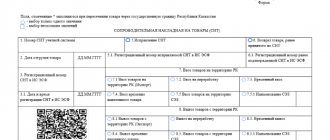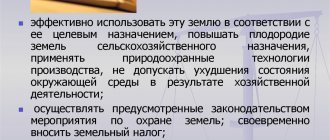Last modified: October 2021
You can own real estate and have the right to dispose of it, or retain the right to use residential premises without being the owner. Lack of right to property does not mean termination of use of real estate if permission was previously obtained. The procedure for using living space is regulated by the Civil Code of the Russian Federation and the Housing Code of the Russian Federation.
If a person lives in an apartment that does not belong to him entirely, it is necessary to understand the issues of granting and terminating the right to use residential premises, as well as the rules of life in an area that is used by several residents at once.
What does the right to use premises mean?
Although the right of use does not mean ownership and disposal of housing, it is inextricably linked with private property. During the residence process, conflicts and controversial issues related to gaining access to common territory and amenities are not excluded. If coexistence brings serious discomfort, the owner may want to terminate the right to use the apartment, which legally belongs to him.
- How to evict tenants from a rental apartment: without a contract, with children
However, ordinary eviction on the initiative of the owner is impossible if there are no grounds for parting with an inconvenient tenant who is exercising his powers.
The right of use is a rule of law that gives a person the opportunity to live and use property that does not belong to him, having legal grounds for doing so. Residents can decide to live in an apartment owned by another owner without receiving the right to sell, donate or otherwise dispose of square meters.
Depending on the circumstances of gaining access to someone else’s real estate, there are several options for the basis on which the non-owner resolves the housing issue.
❌ Can the new owner refuse to live in his apartment?
If a person has the right of residence, regardless of the fact of purchase and sale of the apartment and the identity of the owner, then trying to deny such a person residence is useless. Moreover, under any circumstances, it does not matter that the buyer was in good faith, and the seller misled him by not warning him about such a “neighborhood”.
If the new owner creates obstacles and does not allow people who have the right to live there to enter the apartment, they will exercise their right through the court - and will move in anyway. Any court will side with such residents.
What makes owners deprivatize housing?
Read
For which they can be evicted from their own home. Memo
More details
Why do you need a single housing document and how to get it. Instructions
Look
Reasons for using residential premises: what are they?
The concept of the right to use residential premises includes cases of allowing citizens to live in residential areas without having formal authority over the property. The basis for this possibility is one of the following situations:
- a family member moves into an apartment registered in the name of another close relative;
- under a social tenancy agreement (in municipal ownership);
- under a contract or order for official housing as part of current employment;
- upon admission to a university or college (for applicants and students);
- when renting housing (under a rental agreement with the landlord);
- when transferring real estate to another owner (for the former owner under a rental agreement);
- as a tenant under a free use agreement;
- after signing the will.
Each situation has its own characteristics of the design and subsequent application of the opportunity received for a limited period of time or for life.
Cases where the owner’s consent is not required to register a residence permit include the registration of a child in the living space of one of the parents.
Lack of property does not mean exemption from responsibilities and compliance with the rules established within the framework of residence of citizens:
- The living space is used for residential purposes only.
- The transferred housing must be preserved along with the property located inside it.
- Utility bills are paid by all persons who are registered and live in the housing.
Once the authority to use has been granted, it can only be terminated in court if the spouses divorce or the transfer of property to another owner is formalized. Other reasons for going to court are often the intention to forcibly evict a rowdy who is violating the order of peaceful coexistence in the same territory, or refusal to pay utility bills (with the prior receipt of a court order to collect debt for housing and communal services).
Municipal property
If the apartment is provided under a social rental agreement, it belongs to the municipality or the state. Living in such housing without privatization only gives the right to use the residential premises, without the possibility of transferring it to other citizens who do not have family ties with the tenant.
When living in municipal property, you need to be prepared for its loss if:
- stop using the allocated meters by moving to another home;
- cases of frequent violation of living standards with housing and communal services arrears of more than 6 months, significant damage to property, damage to communications, disruption of order causing disturbance to neighbors, or attempts to use housing for non-living purposes have been established;
- the parent is deprived of rights to the child with recognition of the impossibility of an adult living together with a child in the same territory.
Use of official, rented housing, dormitory
Sometimes the basis for the emergence of the right to use residential premises is the personal will of the owner or the emergence of a temporary need to organize a place to live. An agreement is concluded that gives the authority to live in the allocated premises.
The agreement is subject to registration with Rosreestr if:
- An annuity was issued on the basis of a lifelong maintenance agreement with dependents.
- The lease lasts 12 months or more.
This form of solving the housing problem is provided to employees of government and commercial structures and rent recipients. The latter may retain the opportunity to live in the living space for a specific period or for life. For students and renters, the period of residence is lost when the contract expires. Failure to comply with the terms of the signed agreement will be grounds for eviction.
Testamentary refusal
Real estate can be transferred to heirs by force of law or by testamentary disposition. If the owner has drawn up a will, indicating in it the possibility of transferring property to a specific heir with the condition of maintaining the residence of another registered person in the apartment, without allocating him a share in the property, we are talking about the emergence of a right of use by testamentary refusal.
The legislation provided an opportunity to resolve the housing issue for citizens who lived in an apartment with the owner after his death. The norm was established in accordance with the provisions of Article 33 of the RF Housing Code. Even if the heir decides to sell the property, if the owner changes, the occupant will retain the right to live and use the property.
Free use under contract
There is a special type of agreement that gives the right to live in an apartment without paying fees for it. The features of the agreement on gratuitous use are described in articles of Chapter 36 of the Civil Code of the Russian Federation.
The parties to the agreement are:
- the lender, who is essentially the owner of the property;
- borrower – a person entitled to use housing.
The contract includes clauses regulating the rights and obligations of the parties, excluding any indication of the conditions under which compensation for the transfer of housing is considered. The agreement can be concluded for any period agreed upon by the parties.
According to Art. 698 of the Civil Code of the Russian Federation, during the period of validity of the contract, the tenant loses the right if he does not pay housing and communal services, damages property, or uses the housing for other purposes. The lender has the right to introduce other rules that allow eviction of a tenant ahead of time, for example, when renting out real estate to another person.
Refusal from privatization
- Refusal to participate in privatization: legal features
Living in municipal housing under a social tenancy agreement, citizens have the opportunity to privatize it. This right is granted once if the person living in the apartment has reached the age of majority. If at the time of the first privatization the parents registered the child as the owner, upon reaching his 18th birthday he has the right to participate in privatization again.
The transfer of rights from the municipality to resident citizens is a voluntary measure that can be waived. After privatization, its participants receive shares in real estate and are then free to dispose of them at their own discretion within the framework of civil and housing legislation. Sometimes residents waive their rights in favor of other privatization participants, increasing the size of their shares. After refusal of privatization, the failed owner retains the right to live in the same apartment for life without worsening living conditions.
If the new owners decide to sell or dispose of the housing in another way, buyers or purchasers of housing are obliged to provide the same living conditions to the tenant who refused to privatize part of the municipal property for themselves.
“Early” termination of the right of “lifelong” residence
The right to use residential premises may be terminated for these persons if they leave for another place of residence (Determination of the Judicial Collegium for Civil Cases of the Supreme Court of the Russian Federation dated 08/04/2015 N 49-KG15-7). At the same time, the absence of registration in another place of residence by a citizen who voluntarily left the residential premises cannot be the basis for retaining his right to unlimited use of the apartment (see, for example, the Determination of the Second Cassation Court of General Jurisdiction dated June 11, 2020 in case No. 88- 13629/2020).
The key point is voluntary, and not forced (for example, due to conflictual relations with the owner) departure from the apartment. The owner of the apartment has the right to demand in court that such persons have lost the right to use the apartment due to their departure to another place of residence. In addition, such departure must be permanent and not temporary.
Therefore, recognition of a citizen as missing, declaring him dead by the court, deregistration in connection with a conviction to imprisonment (see, for example, the Appeal ruling of the Moscow City Court dated August 24, 2018 in case No. 33-29430/2018), as well as in connections with registration in a boarding school or other social protection institution will not be an obstacle to the resettlement of such citizens after their announcement and return.
The right to use residential premises in a building of a housing construction cooperative may not be retained by the persons who were included in the order for its provision in the event of foreclosure on this residential premises as mortgaged property and its sale at public auction.
When resolving the issue of the possibility of preserving the right to use this residential premises for family members of the previous owner, included in the order for its provision in accordance with previously applicable legislation, the courts must take into account the factual circumstances of a particular case, namely: whether family members of the previous owner have the right to use other residential premises, the difference between the amount received during the sale of residential premises and the amount of the collected debt secured by collateral, the possibility of using these funds to purchase another residential premises or rent them, etc. (Resolution of the Constitutional Court of the Russian Federation dated March 24, 2015 N 5-P).
Recognition of the right to use residential premises and its termination
If the right of use is disputed or there is a need to terminate it unilaterally, a decision from a judicial authority will be required. The consideration of claims regarding the right and procedure for using housing is considered by the district or city court at the location of the property.
Situations considered by the judicial authority may be related to:
- with the right being challenged by the owners or other residents;
- with the requirement to grant the right of use to applicants;
- with determination of the order of use;
- with the termination of residence of citizens who violated the terms of the contract.
When filing a claim, a fee of 300 rubles is paid. Since most often going to court is caused by disputes between parties interested in terminating and preserving the right of use, it is worth paying special attention to cases where eviction of non-owners is possible.
✅ Ways out
There are only two ways out of the situation:
- The first is to try to negotiate with the person who has the right of residence.
- The second is to go to court with a demand to cancel the apartment purchase and sale agreement. In court, you will have to prove that the seller initially misled the buyer by concealing the presence of a tenant with the right of residence. It is advisable to back this up with testimony and documents, so in any case, keep all, even minor, documents from the transaction.
In order not to get into trouble and subsequently spend even more money on a lawyer, when buying and selling, it is better to act through an experienced realtor or at least hire a lawyer once to check the legal purity of all documents and the presence of pitfalls.






